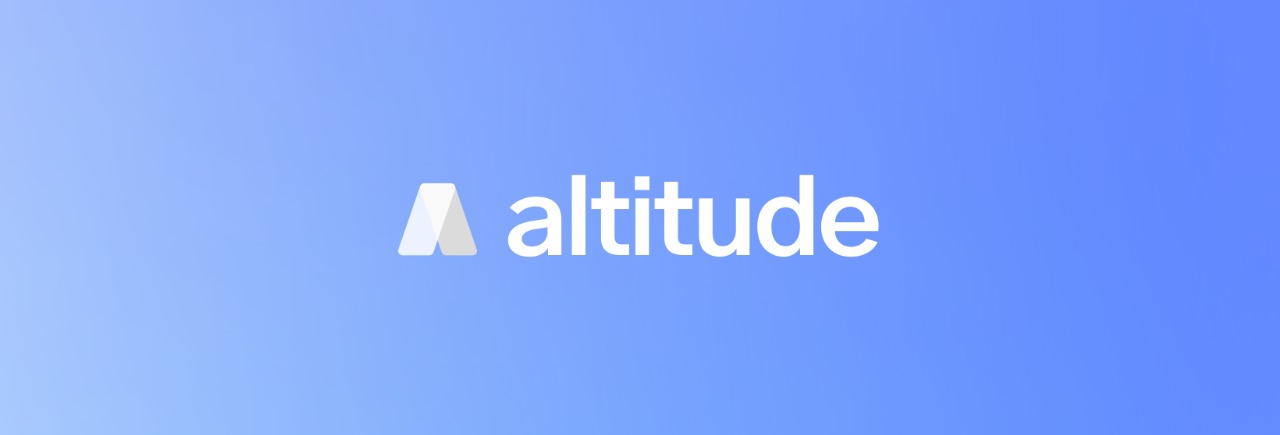Altitude: Redefining Blockchain Infrastructure
Project Overview
Altitude is an ambitious project aimed at revolutionizing blockchain infrastructure by providing customizable, high-performance node access and API solutions. As the lead developer, I’ve been at the forefront of creating a robust ecosystem that caters to developers, DApps, and blockchain enthusiasts who demand more from their node access and blockchain tooling.
Key Features
- Private Node Access: We’ve built a network of high-performance nodes, ensuring faster and more reliable transactions.
- Custom API Endpoints: I’ve developed a flexible API system that allows for tailored endpoints, optimizing workflow and enhancing DApp performance.
- Low Latency Infrastructure: Our architecture is designed to minimize latency, crucial for MEV and high-frequency trading operations.
- Community-Owned Full Nodes: We’ve implemented a system for accessing synced, low-traffic full nodes across multiple blockchains.
- Advanced Documentation and Starter Packs: I’ve created comprehensive guides and ready-to-use code bundles to accelerate development processes.
Technical Challenges and Solutions
One of the most exciting challenges was designing a system that could offer extensive RPC API customization, particularly for chains compatible with the reth execution client. This involved:
- Developing a framework for tailoring existing RPC methods to meet specific project needs.
- Implementing custom RPC endpoints for unique data retrieval and transaction processing.
- Optimizing API responses for improved performance in specialized use cases.
- Creating a flexible system for bespoke data aggregation and analysis methods within the RPC framework.
To achieve this, I leveraged Rust’s powerful performance capabilities and designed a modular architecture that allows for easy customization without compromising on security or efficiency.
Infrastructure Development
As the lead developer, I’ve been responsible for creating the entire infrastructure necessary to support Altitude’s services. This included:
- Setting up and managing a network of high-performance nodes across various blockchain networks.
- Developing a robust load balancing system to ensure optimal performance and reliability.
- Implementing advanced monitoring and alerting systems to maintain service quality.
- Creating a secure and scalable backend to handle custom API requests and data processing.
Ongoing Development
While we’ve made significant progress, Altitude is an ongoing project with exciting developments on the horizon:
- Expanding Chain Support: We’re actively working on extending our services beyond EVM-compatible chains to meet the diverse needs of the blockchain ecosystem.
- Validation Services: We’re in the process of developing a validation service for individuals, allowing them to participate in network consensus mechanisms easily and securely.
- Enhanced Customization Tools: I’m currently working on a suite of tools that will allow users to create and deploy custom RPC methods with minimal coding required.
Personal Reflection
Leading the development of Altitude is an exhilarating journey. It’s pushing me to dive deep into the intricacies of blockchain infrastructure, constantly honing my skills in Rust, distributed systems, and high-performance computing. The challenges we’re facing, from optimizing query performance to ensuring rock-solid reliability, are both demanding and incredibly rewarding to tackle.
What excites me most about Altitude is its potential to empower developers and projects that require a level of customization and performance that larger, more generalized providers can’t offer. As we’re building and refining our services, I’m constantly inspired by the possibilities our platform will unlock for innovative blockchain projects.
The development process is intense but deeply satisfying. Each day brings new challenges, whether it’s fine-tuning our low-latency infrastructure or designing flexible API customization tools. It’s a continuous learning experience that keeps me on my toes and fuels my passion for blockchain technology. As we’re laying the groundwork for our validation services, I’m particularly excited about the impact this will have on network decentralization and individual participation in blockchain consensus. It’s a complex feature to implement, but the potential to democratize network validation is incredibly motivating.
